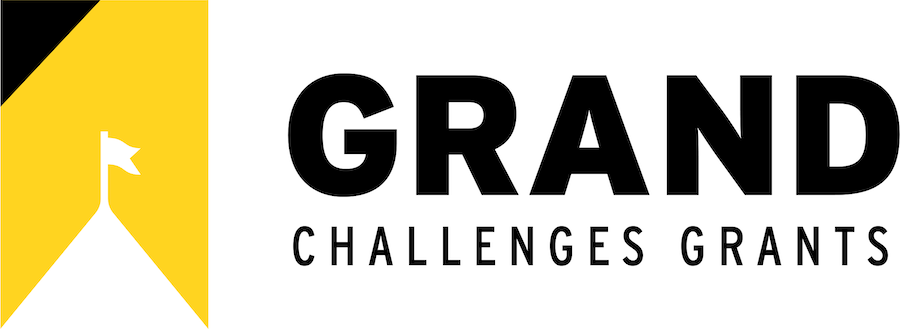READI 4 PHE
(Resilient Engagement for Action and Disaster Initiative for Public Health Emergencies)
Formerly the Pandemic Readiness Initiative (PRI)
Grant Type: Impact Award
Topics: Global Health, Pandemic and Disaster Preparedness, Response and Recovery
Colleges: SPHL, ARHU, BSOS, EDUC, INFO, JOUR
Join the READI 4 PHE LinkedIn Group for news, research highlights, events, and collaboration opportunities related to public health emergency preparedness.
UMD Study Finds COVID ‘Long-Haulers’ Lack Reliable Information
June 18, 2025
A University of Maryland study found that people living with long COVID struggle to access trustworthy, relevant health information, often turning to unreliable online sources out of frustration. The research warns that this “information marginalization” fuels mistrust and distress, urging journalists and scientists to improve communication with affected communities during future public health crises.
PRI Faculty Receive Top Paper Award at the 2025 International Communication Association Conference
March 2025
PRI faculty were honored with the Top Paper in Crisis Communication Award from the Public Relations Division at the 2025 International Communication Association Conference for “Theorizing Forgotten Crisis Publics: COVID Long Haulers’ Information Marginalization.” Authored by Dr. Brooke Fisher Liu, Dr. Duli Shi, Dr. Beth St. Jean, Jane Behre, and Miranda Downey, the paper explores how individuals with long COVID navigate information scarcity, distrust, and emotional coping amid ongoing uncertainty. The study, part of the Long COVID Project within UMD’s Pandemic Readiness Initiative, advances understanding of marginalized publics during health crises and underscores PRI’s leadership in crisis and risk communication research.
Grand Challenges Grant Q&A: How Education Can Help Us Prepare for the Next Pandemic
November 7, 2023
PRI faculty joined the University of Maryland’s Grand Challenges Q&A series to discuss how communication, education, and community partnerships can strengthen future pandemic preparedness. The feature highlights the role of Dr. Sarah McGrew, College of Education, and the Pandemic Readiness Initiative (PRI) in integrating social and behavioral sciences to improve responses to public health crises. Funded by a Grand Challenges Impact Award, PRI aims to help society learn from COVID-19 and better prepare for future emergencies.
Book Discussion: Asymptomatic: The Silent Spread of COVID-19 and the Future of Pandemics, by Dr. Joshua Weitz
March 28, 2025
3:30-5:00 pm, School of Public Policy, Conference Room #2202
Dr. Joshua Weitz, UMD Professor and Clark Leadership Chair in Data Analytics, discussed his book, Asymptomatic: The Silent Spread of COVID-19 and the Future of Pandemics, with UMD faculty and students. The session explored data-driven insights from the COVID-19 pandemic and strategies for improving preparedness for future public health crises.
Pandemic Readiness Initiative Public Research Seminar
November 8, 2024
Friedgen Lounge (Room 2236), School of Public Health
UMD PRI researchers presented their current studies on COVID-19 and other public health crises during this in-person seminar. The session featured discussions on emerging findings, lessons learned, and strategies to strengthen future pandemic preparedness.
Webinar: Lab and Field Experiments for Communicating Viral Exposure Risk
March 29, 2024
The PRI hosted Dr. Alyssa (Allie) Sinclair for a talk on how to effectively communicate health risks to change behaviors. At the time of the talk, Dr. Sinclair was the Joan Bossert Post-Doctoral Research Fellow at the University of Pennsylvania and jointly affiliated with the Center for Science, Sustainability, and the Media and the Communication Neuroscience Lab within the Annenberg School for Communication. Her research with UMD Professors Dr. Joshua Weitz and Stephen Bennett found that beliefs about viral exposure risk were poorly aligned with actual risk, but those beliefs strongly predicted preventative health behaviors. This talk highlighted several studies about behavioral interventions that effectively corrected misconceptions about health risks, reduced intentions to engage in risky health behaviors, and increased booster vaccine uptake. The studies demonstrated the value and impact of translating insights from controlled experiments in the lab to large-scale communication campaigns via public websites and social media platforms.
SPHL709: Reading Public Health Emergencies Through Information and Communication Research and Policy
(Dr. Cynthia Baur, facilitator, and PRI faculty)
- PRI faculty created this graduate-level course to bridge research, policy, and practice in crisis and health communication as applied to public health emergencies. Faculty and guest speakers introduced students to a wide range of topics related to public health emergency communication. Taught Winter 2024 and 2025.
BSCI439C/BIOL708F: Infectious Disease Dynamics: A Systems Approach
(Dr. Stephen Beckett, PRI faculty, and Dr. Gabi Steinbach)
- Faculty co-led this interdisciplinary course applying systems thinking to infectious disease population dynamics and epidemiological modeling. Students examined prevention and mitigation strategies across human and environmental contexts. Offered in 2025 for undergraduate and doctoral students.
UNUH 2480: We the (Artificial) People - How AI Has Reshaped Politics
(Dr. Cody Buntain, PRI faculty)
- The College of Information Studies launched this undergraduate course examining how artificial intelligence transforms political systems, participation, and communication in the United States and globally. Students critically analyzed AI’s influence on political behavior, media ecosystems, and public trust. Offered Fall 2024.
Published Works
St. Jean, B., Raymond, K. F., Liu, B. F., Shi, D., Downey, M., Hodge, T., Behre, J., and Miller, N. (2026). “I'm staying as informed as I can and trying to make nutritional and lifestyle amendments”: COVID long haulers’ strategies for managing uncertainty and assessing the trustworthiness of COVID nineteen related information. SSM – Qualitative Research in Health, 9, 100681. https://doi.org/10.1016/j.ssmqr.2025.100681
Liu, B. F., Shi, D., St. Jean, B., Behre, J., & Downey, M. (2025). Theorizing Forgotten Crisis Publics: COVID Long Haulers’ Information Marginalization. Public Relations Review, 51, paper 102556. https://doi.org/10.1016/j.pubrev.2025.102556
Downey, M., St. Jean, B., Behre, J., Raymond, K., Liu, B. F., & Shi, D. (2024). “We don’t have a lot of answers”: An investigation of COVID long-haulers’ information needs and practices. Research poster presented at the ASIS&T 2024 Annual Meeting, Calgary, Canada, October 28, 2024. https://doi.org/10.1002/pra2.1133
St. Jean, B., Raymond, K., Downey, M., Hodge, T., Behre, J., Liu, B. F., Shi, D., & Miller, J. N. (2024). “Trust your gut & be tenacious with your information”: Information needs and information avoidance among COVID long-haulers. Research talk presented at the 2024 ASIS&T SIG-USE Annual Research Symposium: Toward People-First Information Behavior Research and Practice, Online, October 4, 2024.
Conference Participation
Preparedness Summit (NACCHO) April 13-16, 2026 – Baltimore, MD
Baur, C., Zelaya, C. with Liu B.F., Raymond, K. F. International, national, and local lessons about pandemic risk and crisis communication. [Poster presentation].
Preparedness Summit (NACCHO) April 13-16, 2026 – Baltimore, MD
Raymond, K. F., Hodge, T., St. Jean, B., & Liu, B. F. Identifying Multi-faceted Health Care Access Gaps for Long COVID Patients: Lessons for Local Preparedness. [Poster presentation].
28th International Public Relations Research Conference (IPRRC) March, 2026 – Orlando, FL
Qu, Y., Zelaya, C., Seate, A., Liu, B., & Nachrin, T. Preparedness is social: Examining parents’ discussion networks and preparedness for measles outbreak. [Paper presentation].
Society for Applied Anthropology Annual Conference March, 2026 – Albuquerque, NM
Getrich, C.M., Liendo Uriona, D., Atwell Seate, A., Liu, B., & Mattas-Curry, L. “We’re Worse off Now than During COVID’: Community Health Workers’ Perspectives on Intensifying Immigration Enforcement as Cascading Crisis.” [Paper presentation].
International Crisis and Risk Communication Conference (ICRCC) March 9-11, 2026 – Clemson, SC
Liu, B. F., Mattas-Curry, L., Atwell Seate, A., Zelaya, C., Liendo, D., Getrich, C., & Baur, C. Frontline voices of care: How community health workers cultivate relationships. [Paper presentation].
Kentucky Conference on Health Communication (KCHC) March 4, 2026 – Lexington, KY
Zelaya, C., Qu, Y., Atwell–Seate, A., Liu, B. F., Nachrin, T. A networked RISP framework for crisis preparedness, focusing on how parents’ information seeking and social networks relate to measles readiness. [Abstract-based paper presentation]
International Communication Association (ICA) Conference June 2025 – Denver, CO
The Memorable Messages and Long COVID projects shared multiple presentations at the premier international conference for the communication discipline. The Long COVID project also received the Top Paper in Crisis Communication Award from the Public Relations Division for its paper, “Theorizing Forgotten Crisis Publics: COVID Long Haulers’ Information Marginalization.”
PRI Research Teams Showcase Findings at the 2025 DC Health Communication Conference
May 1–3, 2025 – Tysons Corner, VA
Several PRI teams, including COVID Local Lessons Learned, Memorable Messages, Trust and Community Health Workers, and Wastewater Surveillance, presented their work at this communication research conference. The Memorable Messages team received recognition from an NIH program manager for its innovative approach to crisis communication and community engagement.
Brin Mathematics Research Center Workshop: Disease Dynamics and Human Behavior
Spring 2025 – College Park, MD
The Wastewater Surveillance team presented its modeling work on behavioral influences in epidemic dynamics and shared findings from Scotland wastewater data. The team also delivered an invited seminar at Virginia Tech and continues to advance collaborative publications on human behavior and epidemic modeling.
Big Ten Democracy Initiative & Business of Journalism Summit
February - College Park, MD
The Local Media Consumption project presented findings from its large-scale data collection across Baltimore, highlighting how local digital spaces shape public access to and engagement with health information. These insights are informing new strategies for strengthening local communication networks during future public health crises.
Accepted for Publication
Baur C, Raymond K, Liu B. (2025). The Influence of Crisis and Risk Communication Best Practices on COVID-19 Communication: A Content Analysis of Lessons Learned and Recommendations, Forthcoming in Health Security
Raymond, K. F., Hodge, T., St. Jean, B., & Liu, B. F. (2025). Barriers to Long COVID Care in the U.S.: An Application of Levesque et al.’s Access Framework, Forthcoming in Health Care Analysis
Ongoing Research
Project currently in progress explore:
- Community engagement through trusted messengers
Since 2020, the world has been impacted by a devastating pandemic, leaving millions of people dead. COVID-19 revealed failed communication, inequitable impacts, and the lack of a proactive and coordinated response that was evidence-based. The pandemic further revealed that, although system-level responses and resources are necessary, we also need to understand human behaviors in public health emergencies. Social and behavioral science research can provide this knowledge for action.
READI 4 PHE (Resilient Engagement for Action and Disaster Initiative for Public Health Emergencies) – formerly the Pandemic Readiness Initiative (PRI) – builds on these lessons by integrating a broad array of social and behavioral sciences to strengthen preparedness for future public health emergencies and disasters. Faculty affiliated with READI 4 PHE bring expertise in public health and risk communication, health literacy, health equity, social media and other digital technologies, public opinion, cognitive processing of messages, disaster management, and cultural studies. Using both traditional quantitative and qualitative social methods alongside emerging data science approaches, the initiative is grounded in core principles of health equity and community engagement, the team promotes educational opportunities for students, faculty, and practitioners across diverse fields.
Pandemic Readiness Initiative Project Summaries - 2024-2025:
Faculty Lead: Stephan Beckett (College of Computer, Mathematical, and Natural Sciences, beckett@umd.edu)
Primary Contact: Veerapetch Petchger (vpetchge@umd.edu)
Team Members: Joshua Weitz, PhD, Kate McPhaul, PhD
Project Description: This project focuses on enhancing wastewater surveillance as a critical tool for public health, particularly in the context of pandemic preparedness. It aims to integrate environmental, clinical, and community health insights to monitor pathogens in wastewater to provide actionable information for public health decision-makers. Key objectives include assessing the current awareness and integration of wastewater surveillance among community leaders, translating raw data into layman’s terms for the public, and evaluating trust levels in wastewater-derived data. The project also emphasizes the importance of communication strategies to engage communities and address privacy and data interpretation concerns, ultimately aiming to improve public health responses to infectious disease threats.
Primary Contact and Faculty Lead: Brooke Fisher Liu, PhD (College of Arts and Humanities, Department of Communication, bfliu@umd.edu)
Team Members: Anita Atwell Seate, PhD, Brooke Liu, PhD, Carina Zelaya, PhD, Ernesto Calvo, PhD, Laura Mendez-Pinto, Tania Nachrin, MS, Yan Qu, PhD.
This project answers the following guiding research question: What makes messages memorable and shareable within Latine communities during pandemics and other crises? The project consists of surveys in the U.S. and Latin America eliciting perspectives about effective and memorable COVID-19 messaging to inform communication approaches for future public health emergencies. We are committed to fostering culturally responsive communication approaches that empower and engage Latine communities during times of crisis.
Primary Contact and Faculty Lead: Dr. Brooke Liu, PhD (College of Arts & Humanities, Department of Communication, bfliu@umd.edu)
Team Members: Anita Atwell Seate, PhD, Christina Getrich, PhD, Brooke Liu, PhD, Carina Zelaya, PhD, Lahne Mattas-Curry, MS, and David Liendo Uriona, MPH
In the wake of the COVID-19 pandemic, trust is broken. Some research, such as the 2024 Edelman Trust Barometer, shows that 63% of global respondents believe that government leaders are purposely misleading community members. Scientists and public health authorities are likewise highly distrusted. The result is fractured organizational-public relationships that hamper community capacity to recover and bounce forward. In this challenging environment, our project investigates how a group of trust brokers, community health workers (CHWs), have supported community resilience during and after the COVID-19 pandemic. The project involves a year-long interview and ethnographic study with CHWs who primarily work with Latine communities in the DMV area. Ultimately, we uncover how trust can be rebuilt and sustained at the community level to promote healthy outcomes before the next major public health crisis.
Primary Contact and Faculty Lead: Beth St. Jean (College of Information Studies, bstjean@umd.edu)
Team Members: Brooke Fisher Liu, PhD, Jane Behre, MLIS, Miranda Downey, MLIS, J. Nicole Miller, MLIS, Sandra Crouse Quinn, PhD, Twanna Hodge, MLIS
Through surveys and interviews with individuals with long COVID (“COVID long-haulers”), this project investigates their information needs, practices, and experiences. This project also investigates the various types of factors that have motivated or demotivated their COVID-related information-seeking and use, the types of information-related barriers they encountered, and their thoughts about an ideal information source or technology that would be (or would have been) most helpful for them as they navigate(d) long COVID. Learnings from this project will help us uncover ways to better prepare the information environment in future pandemics, epidemics, and personal health crises, to ensure that everyone has convenient access to trustworthy information that is accurate, relevant, understandable, useful, and actionable.
Primary Contact and Faculty Lead: Cody Buntain, PhD (College of Information Studies, cbuntain@umd.edu)
Team Members: Naeemul Hassan, PhD, Sarah McGrew, PhD, Stephen B. Thomas, PhD, Katherine Raymond, MSW
This project engages local communities in Maryland to solicit their insights on the core sources of information they use when seeking information related to their health, their perceptions of how technology shapes the information they consume, and how they engage with this technology to assess health threats and learn how to protect themselves. Through a survey, this project is developing maps of hyper-local information spaces to provide a foundation for understanding contemporary information consumption among traditionally underserved communities and the local versus national consumption patterns of health-related information. Combining this survey with digital trace and audience data, we are developing a more holistic view of the Maryland-specific information space and the central sources of health information on which Marylanders rely. We are using this data to measure social media’s role in facilitating or hindering the spread and accessibility of local public health information.
Pandemic Readiness Initiative Project Summaries - 2023-2024:
Primary Contact: Cynthia Baur, PhD (School of Public Health, cbaur@umd.edu)
Team Members: Christina Getrich, PhD, Carina Zelaya, PhD, Meg Jordan, MPH, Sandra Crouse Quinn, PhD, Katherine Raymond, MSW
This project aims to establish a baseline understanding of community experiences during the COVID-19 pandemic and in its aftermath. This project also aims to gain insights about community intentions to prepare for and apply lessons learned in future pandemics. Community leaders from counties across Maryland will be invited to engage in focus group discussions about their community’s experiences. Data from this study will lead to in-depth summaries about the pandemic experiences of communities across Maryland that will help inform community-level pandemic readiness efforts.
This project will recruit community leaders in Maryland communities in late Fall 2023.
Primary Contact: Beth St. Jean, PhD (College of Information Studies, bstjean@umd.edu)
Team Members: Brooke Fisher Liu, PhD, Jane Behre, MLIS, Miranda Downey, MLIS, J. Nicole Miller, MLIS, Sandra Crouse Quinn, PhD, Twanna Hodge, MLIS
Through surveys and interviews with individuals with long COVID (“COVID long-haulers”), this project investigates their information needs, practices, and experiences. This project also investigates the various types of factors that have motivated or demotivated their COVID-related information seeking and use, the types of information-related barriers they encountered, and their thoughts about an ideal information source or technology that would be (or would have been) most helpful for them as they navigate(d) long COVID. Learnings from this project will help us uncover ways to better prepare the information environment in future pandemics, epidemics, and personal health crises, to ensure that everyone has convenient access to trustworthy information that is accurate, relevant, understandable, useful, and actionable.
This project is actively recruiting participants with long COVID; please email Beth St. Jean for more information.
Primary Contact: Cody Buntain, PhD (College of Information Studies, cbuntain@umd.edu)
Team Members: Naeemul Hassan, PhD, Sarah McGrew, PhD, Stephen B. Thomas, PhD, Katherine Raymond, MSW
This project engages local communities around UMD to solicit their insights on the core sources of information they use when judging threats to their health, their perceptions of how technology shapes the information they consume, and how they engage with this technology to assess health threats and learn how to protect themselves. Through a survey, this project will develop maps of hyper-local information spaces and their mediascapes to provide a foundation for understanding contemporary information consumption among traditionally underserved communities. We will build on these foundations using web collection, digital ethnography, and contextual inquiry to learn how these spaces have changed over time, the degree to which technology has served to amplify or suppress voices from these communities, and policy/technological design choices that could better empower these communities.
This project will be actively recruiting participants from Prince George’s County and Baltimore City, Maryland in Fall 2023.
Primary Contact: Brooke Fisher Liu, PhD (College of Arts & Humanities, Department of Communication, bfliu@umd.edu)
Team Members: Anita Atwell Seate, PhD, Carina Zelaya, PhD, Ernesto Calvo, PhD, Laura Mendez-Pinto, Meg Jordan, MPH, Sandra Crouse Quinn, PhD, Stephen B. Thomas, PhD, Tania Nachrin, MS.
This project answers the following guiding research question: What makes messages memorable and shareable within Black and Latinx communities during pandemics and other crises? The project consists of a multi-sited rapid ethnography with the Maryland Health Advocates In-Reach and Research (HAIR) network of barbershops and salons, which will take place in the fall of 2023. Then, the team will conduct a national survey eliciting perspectives about effective and memorable COVID-19 vaccine messaging among Black and Latinx communities to inform communication approaches for these communities for future public health emergencies. We invite you to stay informed about the progress and outcomes of this project by visiting the UMD Center for Health Equity website. We are committed to fostering culturally responsive communication approaches that empower and engage Black and Latinx communities during times of crisis.
This project will actively recruit participants from the Maryland HAIR network in the Fall 2023, and a broader national sample in Spring 2024.
Team Members:
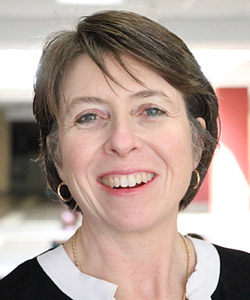 PI: Cynthia Baur (SPHL), Endowed Chair and Director, Horowitz Center for Health Literacy |
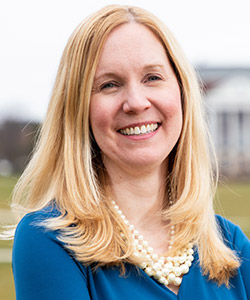 PI: Brooke Fisher Liu (ARHU), Professor, Communication |
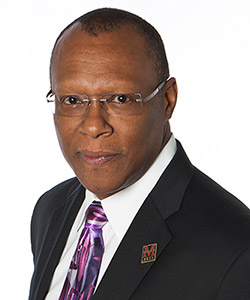 Stephen B. Thomas (SPHL), Professor, Health Policy and Management and Director, Center for Health Equity |
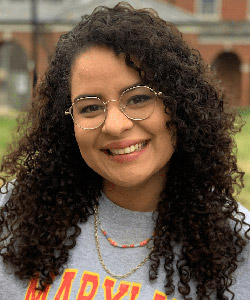 Carina Zelaya (ARHU), Assistant Professor, Communication |
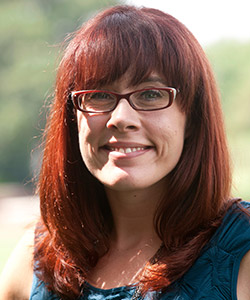 Anita Atwell Seate (ARHU), Associate Professor, Communication |
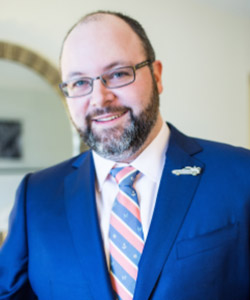 Cody Buntain (INFO), Assistant Professor, Information Studies |
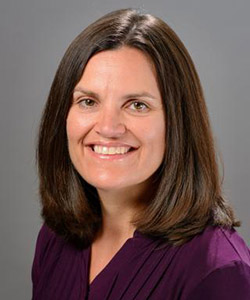 Christina Getrich (BSOS), Associate Professor, Anthropology |
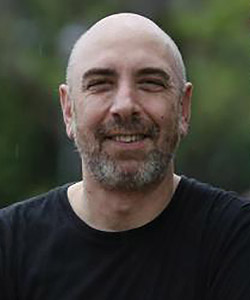 Ernesto Calvo (BSOS), Professor, Government and Politics |
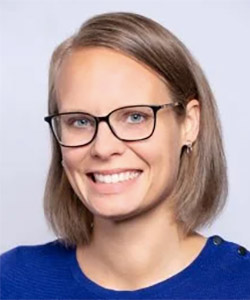 Sarah McGrew (EDUC), Assistant Professor, Teaching and Learning, Policy, and Leadership |
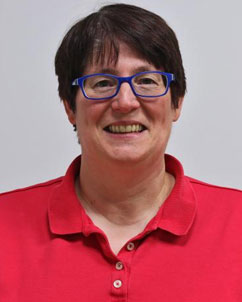 Beth St. Jean (INFO), Associate Professor, Information Studies |
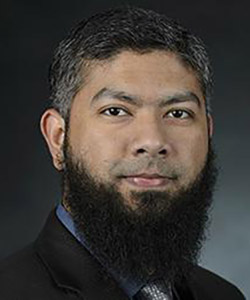 Naeemul Hassan (JOUR), Assistant Professor, Journalism |
 Donald Milton (SPHL), Professor of Global, Environmental, and Occupational Health |
 Kathleen McPhaul (SPHL), Associate Research Professor, Global, Environmental, and Occupational Health |
 Joshua Weitz (CMNS), Professor and Clark Leadership Chair in Data Analytics, Biology |
 Stephen Beckett (CMNS), Associate Research Scientist, Biology |
 Abba Gumel (CMNS), Professor & The Michael and Eugenia Brin Endowed E-Nnovate Chair in Mathematics |
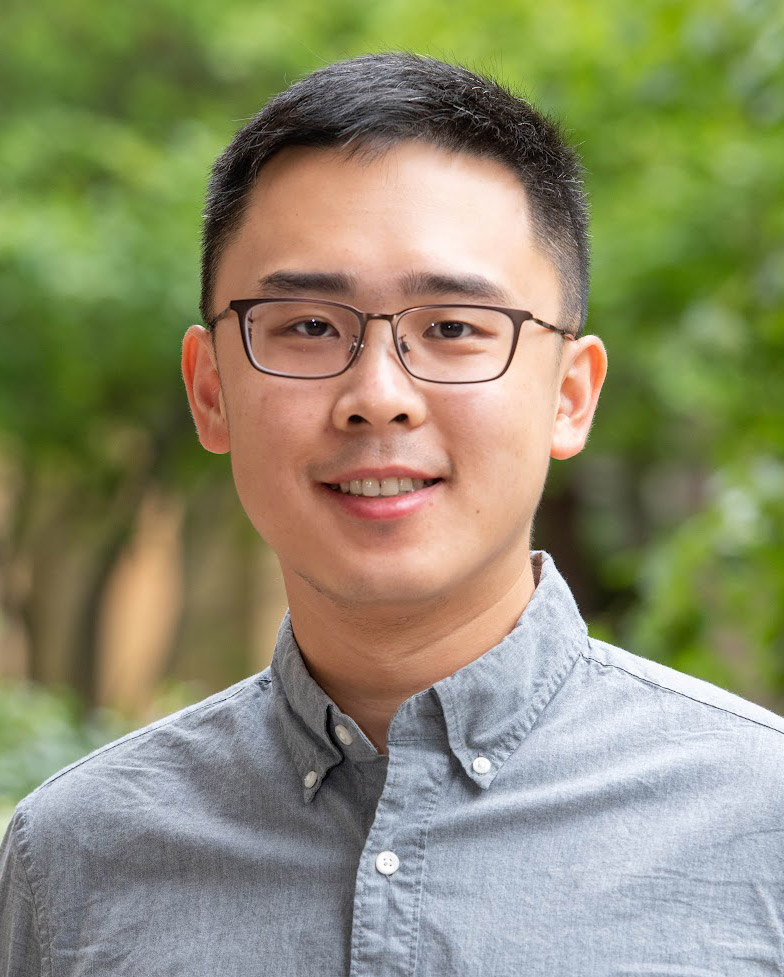 Yan Qu (ARHU), Assistant Professor, Communications |
Partnerships:
- Center for Health and Homeland Security, UMB
- Center for Health Security, Johns Hopkins University

